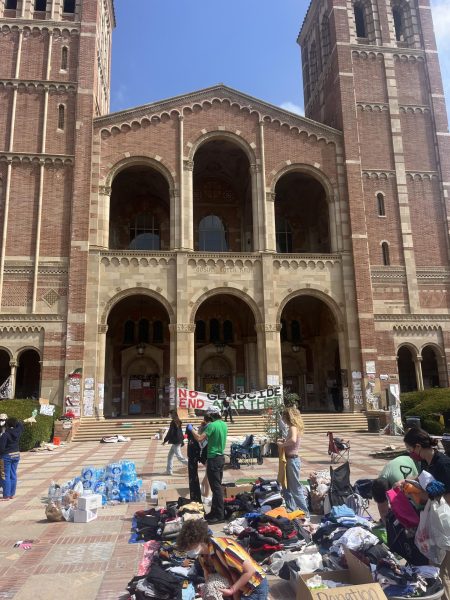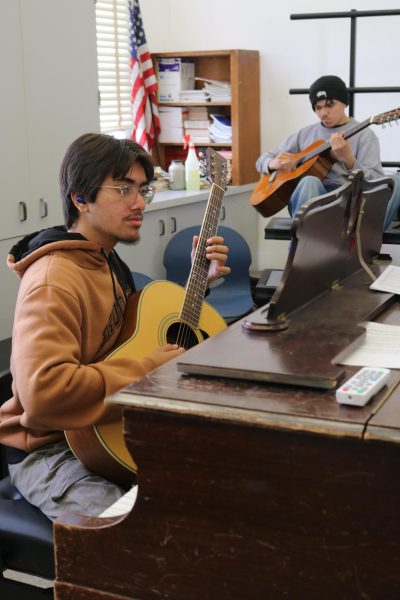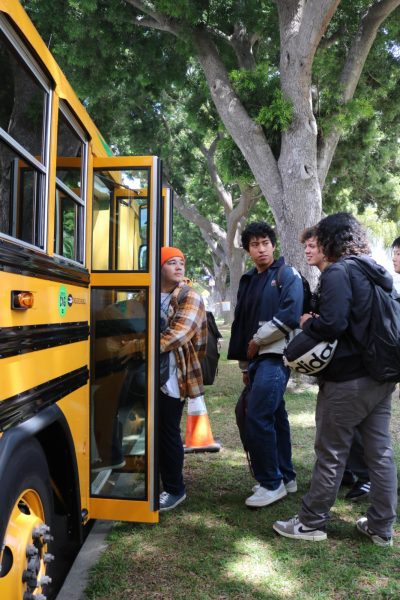UTLA Plans Strike Against LAUSD
September 13, 2018
Los Angeles Unified School District may face its first potential teacher strike since 1989.
United Teachers Los Angeles, a union representing more than 35,000 teachers, conducted a strike authorization vote Aug. 23-30, resulting in 98 percent of its members who cast ballots voting in favor of a strike. Additionally, Venice High School teachers voted 100 percent in favor of a strike, according to Wendy Sarnoff, UTLA chairwoman at Venice High School. Teachers have been wearing red t-shirts to show their support for the union.
Local educators may strike because they want a fair pay raise, smaller class sizes, and improved school safety, among other things. UTLA claims that LAUSD is only offering teachers a two percent raise while LAUSD claims that a six percent raise is available for teachers.
The community is invited to a meeting to support public schools on Thursday, Sept. 13 at 3:30 p.m. in Wade Park, 4162 Wade St., Culver City.
LAUSD, led by new Superintendent Austin Beutner, claims that it also supports smaller class sizes, but UTLA’s demands would bankrupt the district.
Although UTLA received 98 percent of votes in favor of a strike, they may not walk out or strike. However, the vote does give the union the lawful right to call a strike, depending on the status of the negotiation with the district.
UTLA is part of a national movement to address a crisis it claims its members have been living with for too long: a public education system that is criminally underfunded, according to www.utla.net.
UTLA has been trying to reach an agreement with LAUSD for more than 16 months. Essentially, UTLA and its members would like LAUSD to allocate its $1.7 billion in reserves to bargain crucial issues, including a fair pay raise, smaller class sizes, charter and co-location regulation, less testing, more nurses, counselors, social workers and librarians, improved school safety and more support for community schools and families.
Although UTLA claims that LAUSD has $1.7 billion in unrestricted reserves, LAUSD in fact begins the 2018-2019 school year with $1.2 billion in savings, according to www.achieve.lausd.net.
Teachers and the district will begin mediation on Sept. 27, mandated by the Public Employment Relations Board (PERB).
When compared with 47 other Southern California school districts, LAUSD teachers with 10 years and 45 units are being paid approximately $9,000 less than the average, coming in at the very bottom for salaries.
“I think teachers feel empowered,” said Soni Lloyd, social studies teacher and co-chair of UTLA at Venice High School. “They realize that the value of this district depends on the classroom of teachers. We are forcing the district to recognize the value that we provide every day, and that we can’t be reproducing it if we aren’t paid equitably and treated equitably.”
On May 24, thousands of teachers, parents and students, including many Venice teachers, rallied in downtown Los Angeles to demand a better contract for educators in LAUSD. Many people that attended wore red t-shirts as a symbol of unity.
The LAUSD school board recently selected Superintendent Beutner, raising many concerns. Beutner is a businessman, civic leader and philanthropist. He co-founded Evercore Partners and is the former publisher and CEO of the Los Angeles Times and the San Diego Union-Tribune. UTLA, however, advocated for a leader with experience in education, knowledge of Los Angeles’ neighborhoods, and a history of collaboration with communities and labor.
“If the district doesn’t meet our demands, we will strike,” Ms. Sarnoff. “We are 42 at the bottom of 50 states with what we pay for our students and our teachers. How can we possibly provide for you the best education when the state isn’t paying its fair share?”
The 1989 strike lasted nine days, with UTLA winning three successive yearly salary increases of eight percent each, along with a restructuring that implemented school site decision-making and school-based management.
“If we can’t make salaries go up, education as we know it is going to disappear,” said Ms. Sarnoff.









